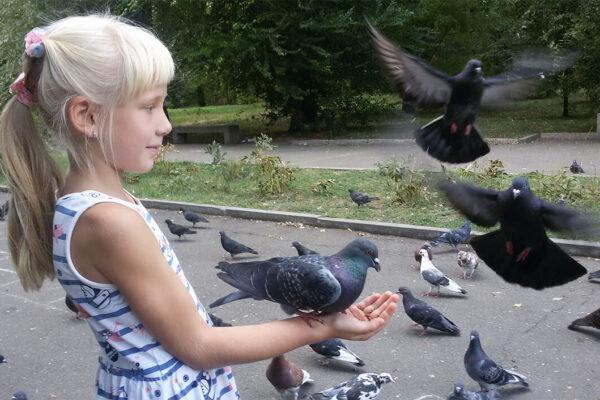Adolescence is one of the most challenging, contradictory, and critical stages in a person’s life. It is a time of rapid physical, hormonal, and psychological changes that deeply impact behavior, emotions, thinking, and the perception of the surrounding world. For parents, it is extremely important to understand the processes their children are going through during this transitional period, in order to maintain trust and find common ground.
The transition from childhood to adulthood is often associated with communication difficulties, frequent conflicts, and emotional distancing between teenagers and their families. It may seem that just yesterday your child was open and obedient, but today they act distant, ignore your requests, and constantly argue. This can cause irritation, resentment, and misunderstanding from parents. However, understanding the key aspects of adolescent psychology can be the key to more harmonious interactions and preventing many conflicts.
In this article, I will explore in detail the typical physiological, hormonal, and psychological changes of the transition period, discuss the main causes of communication barriers between parents and teenage children, and offer practical recommendations on how to find common ground with a teenager, establish effective dialogue, and restore mutual understanding. A deep dive into this topic will help adults approach the transformations of their children with greater patience and understanding, rather than meeting them with resistance.

Physical and Hormonal Changes in Adolescence
Puberty, which covers the ages from 12 to 18 (and sometimes begins earlier), is characterized by major physiological transformations triggered by the body’s intense hormonal changes. Surges of androgens (testosterone in boys), estrogens (in girls), and other sex hormones initiate a series of processes involving the growth and development of secondary sexual characteristics.
During this period, girls begin their menstrual cycle, experience rapid breast development, and develop the characteristic female body shape. Boys, on the other hand, exhibit the appearance of primary sexual characteristics: facial and body hair growth, voice deepening due to laryngeal enlargement, and significant muscle mass gain.
These rapid physical changes often outpace emotional and psychological maturity. The uneven development of different areas of the brain that regulate emotions, thinking, and decision-making leads to a disconnect between the almost “adult” body and the still adolescent, immature worldview and behavior. This gap can cause feelings of confusion, disorientation, frequent mood swings, and difficulty concentrating. It’s no wonder that during this time, a child may feel lost and “out of place.”
Sharp hormonal fluctuations directly affect emotional states, provoking extreme emotional instability. Adolescents may experience mood swings ranging from euphoria to deep apathy and irritability over minor issues. Stubbornness, negativism, protest reactions, and aggressive assertions of independence are also common, especially toward authoritative adult figures, such as parents or teachers.
During puberty, the sense of autonomy and the need for personal space intensify. Teenagers fiercely protect their privacy, interests, and secrets from outsiders, particularly their parents. Any attempts by adults to limit freedom or control their lives may be perceived as an invasion of personal boundaries, sparking intense resistance, protest, and heated conflicts.

Psychological Transformation of Adolescents
Along with physiological changes, adolescence is marked by a series of profound psychological transformations. The main task of this period is the formation of one’s own identity and answering the existential question, “Who am I?” As they lose their childlike innocence, teenagers dive into the complex process of self-discovery and seeking their uniqueness.
To define their identity, teenagers often experiment with various styles in clothing, hairstyles, musical preferences, philosophical ideas, behaviors, and social roles. This helps them try on different “personalities” and move away from infantile stereotypical images. A drastic change in appearance or hobbies is just an external manifestation of the deep internal work toward finding their true “self.”
The need for independence and separation from parents becomes a dominant value during adolescence. Teenagers desperately strive to differentiate and distance themselves from their family, relying less on the care and decisions of adults. The opinions of peers, friends, and belonging to a particular group or youth subculture become major factors of self-identification.
At this time, there is a rapid development of logical, reflective, and abstract thinking. Adolescents show increased interest in philosophical ideas and concepts, ponder abstract ethical, political, and existential questions, and analyze the deeper causes of events and actions. However, philosophical idealism and excessive idealism can lead to uncompromising judgments, resulting in numerous conflicts with more experienced, pragmatic adults.
An important psychological feature of adolescence is the need to assert personal autonomy and define boundaries. Teenagers strive to develop a life scenario independent of their parents, along with their own set of values and priorities. They may defiantly ignore accepted norms and expectations, criticize parental beliefs, and insist on their own convictions. Behind this protest behavior often lies a simple desire to assert themselves and prove their maturity and uniqueness.
Profound socio-psychological changes also affect self-esteem. The significance of peer approval and acceptance becomes enormously important for adolescents. In pursuit of recognition, they are willing to take bold, and sometimes even life-threatening, risks. Difficulties in establishing themselves within their peer group, bullying, or ridicule can severely harm their fragile self-esteem. At the same time, teenagers begin to feel a strong need for respect from adults, though they often avoid showing this desire directly in order to avoid appearing weak or naive.

Communication Barriers in Adolescence
Aside from the internal factors related to physiological and psychological changes, there are a number of external factors that seriously hinder building harmonious and trusting relationships between parents and teens. One of the main obstacles is the gap in values, language, lifestyle, and cultural norms between today’s teenagers and the adult generation.
Behind the outward bravado, rebellious behavior, slang, or, on the contrary, the distant silence of modern teenagers, there are often the usual insecurities, fears, search for identity, and a deep need for approval, understanding, and emotional support from their close ones. However, for most teenagers, openly expressing these feelings is extremely difficult.
For teens, parents and adults symbolize authority, strict rules, and limitations. That’s why relationships with them are often built on the “generation gap” principle: any attempts at advice or criticism are met with hostility, sparking fierce resistance and protest. At the same time, teenagers desperately need adult support but are rarely brave enough to ask for it directly, out of fear of appearing weak or childish.
Another stumbling block is the underdeveloped verbal communication skills of adolescents. They struggle to choose the right words to express their thoughts and often deeply ambivalent feelings. Their tendency for emotional extremism and black-and-white thinking often leads to pointless conflicts and mutual misunderstanding with adults, who tend to be wiser, more restrained, and pragmatic.
For instance, imagine your 14-year-old son skips school for the first time. He’s acting distant and withdrawn, refusing to discuss why he did it. Maybe he’s even getting aggressive. The natural parental reaction is to start a strict interrogation, listing all the negative consequences of missing school. But in this situation, the teenager only feels that his personal boundaries are being attacked and that there’s a complete lack of understanding. As a result, the conflict intensifies, leading to escalated tension and mutual accusations.

How to Find Common Ground with a Teenager: Tips from a Psychologist
Maintaining constructive contact with a teenager is tough due to all the physiological and psychological hurdles. However, it’s possible to build a harmonious communication system and find common ground with a teenager by following some important rules and principles. Here are a few key tips:
- Don’t interrupt. First and foremost, parents need to master the art of active, non-judgmental listening. During conversations, don’t interrupt your teenager or cut them off mid-sentence. Even if what they’re saying seems completely absurd, irrational, or unacceptable—let them finish and get it all out.
- Avoid criticism. Don’t allow yourself to directly criticize, judge, or mock them during a conversation. Instead, focus on understanding the teenager’s perspective from within, try to empathize with their emotional state, and imagine yourself in their shoes.
- Ask questions. Ask clarifying questions to better understand what they mean, and show your willingness to hear their viewpoint. Then politely rephrase what you’ve heard: “If I understood you correctly, you meant that…” This approach will help find common ground with the teenager, increase the chances of building trust, and show your genuine interest in their opinion.
- Respect their personal boundaries. Respect your teenager’s right to freedom and privacy. The threshold of their room should be an unspoken boundary between your worlds. Don’t invade their personal space—their hobbies, gadgets, belongings, or messages. Even if something irritates or totally displeases you—resist the urge to control or directly intervene. Remember, the desire for independence is totally natural and normal at this age. Excessive parental control will inevitably lead to tension and conflicts.
- Create an atmosphere of openness and safety. Be completely honest and consistent in what you say, and never allow yourself to lie or deceive, even with the best of intentions. Don’t make empty promises you can’t keep. Too much negativity, criticism, or constant belittling of their personality, hobbies, or appearance (especially in front of others) can seriously hurt their still fragile self-esteem. Instead, try to acknowledge even the small achievements and efforts your teenager makes, praise them for their hard work, and show appreciation for their talents.
- Show genuine interest in their life and hobbies. Ask questions, discuss the topics that interest them. This will not only help you understand teenage values and motives better but also demonstrate your readiness to listen to their point of view. If possible, take part in their hobbies or projects, plan outings, or trips together. Spending time together and seeking new experiences is a great way to find common ground with your teenager and strengthen family relationships.
Finally, don’t forget the importance of feedback and the opportunity for self-expression. Give your teenager the space to express their emotions, even if they aren’t always positive. Don’t ignore or brush off their feelings as insignificant or trivial. Listen carefully, allow them to speak, and acknowledge their right to their own perspective and personal take on the situation. This will help significantly reduce inner tension, conflict, and withdrawal.

Parental Mistakes
One of the most common and critical mistakes in relationships with teenagers is the incorrect balance between control and granting freedom. Experts highlight the harmful effects of two opposite approaches.
Excessive control or permissiveness
On the one hand, excessive strictness, overprotective supervision, too many imposed rules and prohibitions, and constant surveillance of every step are perceived by teenagers as a lack of trust in their ability to make decisions independently. This becomes an infringement on their most valued asset—independence—provoking fierce protest, even hostility and alienation from the family.
On the other hand, a permissive parenting style, with no boundaries or limits on acceptable behavior, is just as dangerous. Growing individuals need clear guidance, an understanding of the consequences of destructive actions, and a sense of responsibility for them. An atmosphere of permissiveness, though it may seem like excessive freedom, can be perceived as indifference or neglect by parents.
The optimal approach is to find a reasonable balance between the teenager’s independence and the necessary level of supervision. There are no universal rules—everything depends on the specific situation and the maturity level of the child. You shouldn’t be overprotective if the child demonstrates responsible behavior, but also shouldn’t loosen control too much if irresponsibility or immaturity is evident. In any case, it is crucial to explain the reasoning behind the rules and limitations.
Comparisons with others
Another common parental mistake is constantly comparing the teenager unfavorably to other children or some idealized “role models.” Hurtful remarks like, “Look at Peter from the parallel class, he’s doing so well…” or “At your age, I was much more responsible” can easily destroy the remains of self-esteem and confidence.
It’s far more effective to praise and highlight the child’s personal achievements, emphasizing their efforts and progress, even if the results are still modest. This will strengthen their motivation for further development and self-improvement.
Inconsistency in rules
Psychologists also warn about the dangers of inconsistency in applying the same rules and consequences for their violation. For example, when one parent strictly forbids something, while the other easily makes exceptions in the same situation. Or when a punishment is excessively harsh in one instance, but for the same offense, the next time only a mild reprimand follows.
Such inconsistency leaves children completely confused. It’s hard for them to determine clear boundaries of acceptable behavior and understand the consequences of their actions. As a result, there’s no incentive to follow any rules.
Ignoring the teenager’s interests
Another important aspect is not ignoring the interests and hobbies of your children. If their hobbies seem meaningless or pointless to you, don’t immediately dismiss them with a condescending, “In our day, we did more valuable things.”
Try to dig deeper, study the essence of their activity, and find the rationale behind it. Maybe it’s not so useless after all? By showing respect for their personal interests, you can earn more trust, build a new bridge for dialogue, and ultimately find common ground with your teenager.

Conclusion
The teenage years are truly one of the most challenging and transitional periods for both children and their parents. The intense hormonal, physiological, and psychological transformations, colored by a whole spectrum of contrasting emotions, can test the nerves of even the most resilient, patient, and calm adults. At times, it may seem as though your once loving and obedient child has turned into a stranger—distant and hostile.
However, it’s essential to remember that distancing from the family, negativism, rebellious behavior, and emotional fluctuations are not signs of some “breakdown” or a sign of a “bad” character. These are just age-related, temporary reactions caused by significant natural changes. Show patience and try to accept these as an inevitable phase on the road to maturity and personal formation.
Yes, this time will be difficult, but you still have a solid foundation of trust and emotional closeness from the past. Don’t miss the opportunity to become a source of support, a friend, and a wise mentor for your teenager. At times, it may seem like the connection is lost, that the teenager rejects all attempts to get closer, but deep down, they still crave your approval and highly value parental authority and opinion, despite their attempts to hide it.
Your unwavering belief in their success, active involvement in their life, interest in their hobbies, and motivation for self-development will play a crucial role in shaping their stable positive self-esteem and sense of emotional well-being. Continue to be their support and guiding star, but at the same time, respect their personal boundaries, their right to their own views, and independent decisions. Remember, your role at this stage is to be a patient guide, fostering their independence and autonomy within safe boundaries.
Always remain open to dialogue. Create an atmosphere of trust and emotional closeness, where your teenager can always come to you for advice or emotional support. The valuable experience and wisdom of the older generation are crucial for proper orientation in the adult world, but imposing them in an overly strict manner is counterproductive.
Flexibility, the ability to listen, and trying to see things from the child’s perspective are often more effective than straightforward instructions. This will help strengthen the bond between you and show your willingness to compromise for the sake of maintaining mutual understanding.
Adolescence is not a permanent state; it’s a transitional phase leading to a new stage of mature and harmonious relationships. Overcoming this challenging period, you and your child will emerge into a new level of trust, deep respect, and friendly communication as equal partners. But the key to such a future lies in your patience, love, and readiness to embrace all the trials of this age here and now.
Recommended Reading
- “Between Mother and Daughter: A Teenager and Her Mom Share the Secrets of a Strong Relationship” by Judy Ford and Amanda Ford. This book, co-written by family therapist and bestselling author Judy Ford and her nineteen-year-old daughter Amanda, is aimed at both mothers and teenage girls who want to maintain or create healthy relationships during the turbulent teenage years.
- “How to Talk So Teens Will Listen & Listen So Teens Will Talk” by Adele Faber and Elaine Mazlish. This book provides practical strategies for parents and educators, helping them find common ground with teenagers while considering their needs and psychology.
- “Teenagers: A Natural History” by David Bainbridge. In lively prose, this author explains the scientific changes occurring in both the adolescent body and mind, from lanky limbs and bad skin to love, sleeping until noon, and the irresistible allure of sex, drugs, and rock ‘n’ roll.
- “The 7 Habits of Highly Effective Teens” by Sean Covey. This book is designed for teenagers themselves. The author offers simple approaches to help them improve self-esteem, build friendships, resist peer pressure, achieve their goals, appreciate parents, and deal with modern challenges such as cyberbullying, doxxing, and social media. Additionally, this book is filled with smart ideas, great quotes, and incredible stories about real teens from around the world.



